Germany: Berlin
Germany
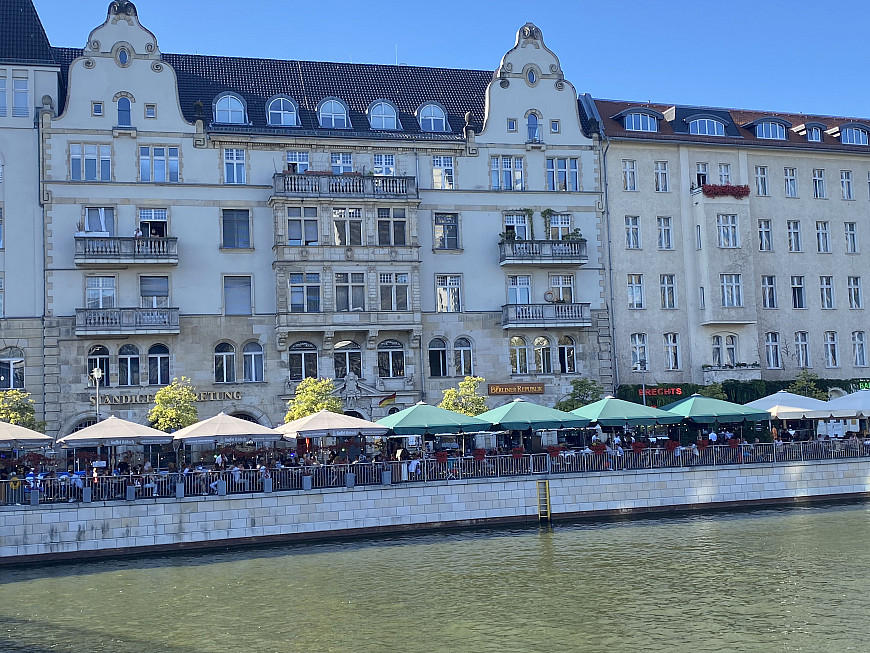
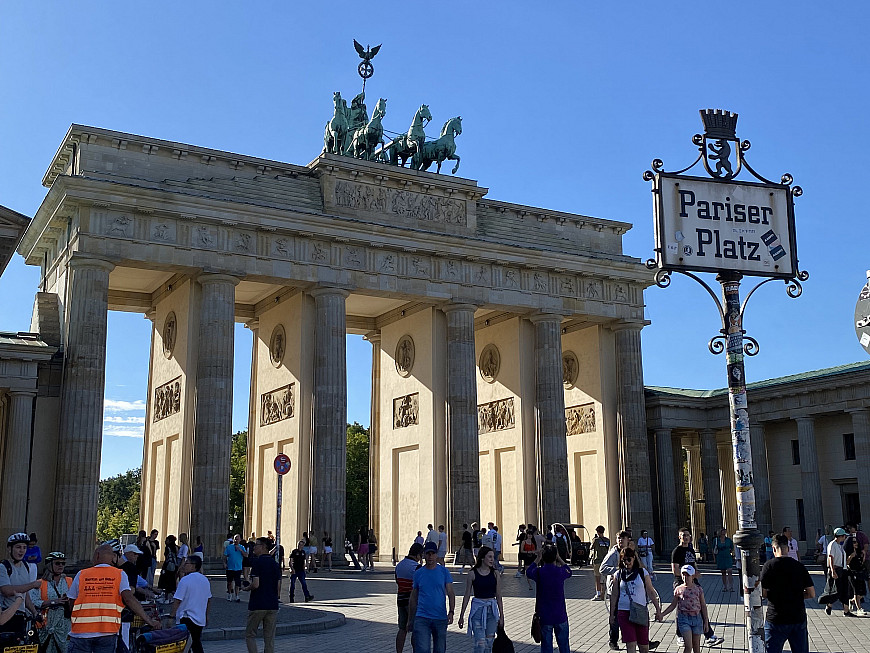
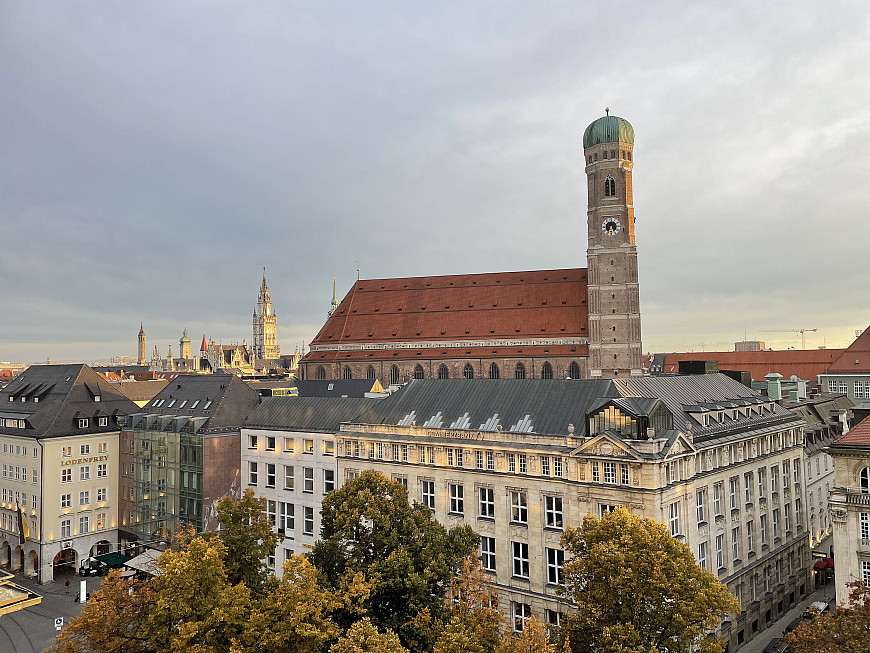
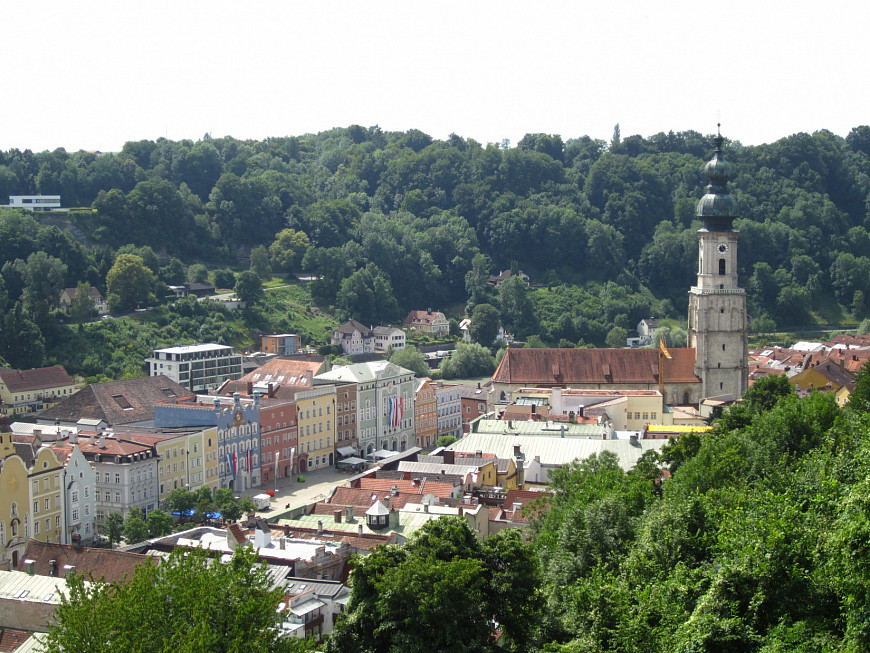
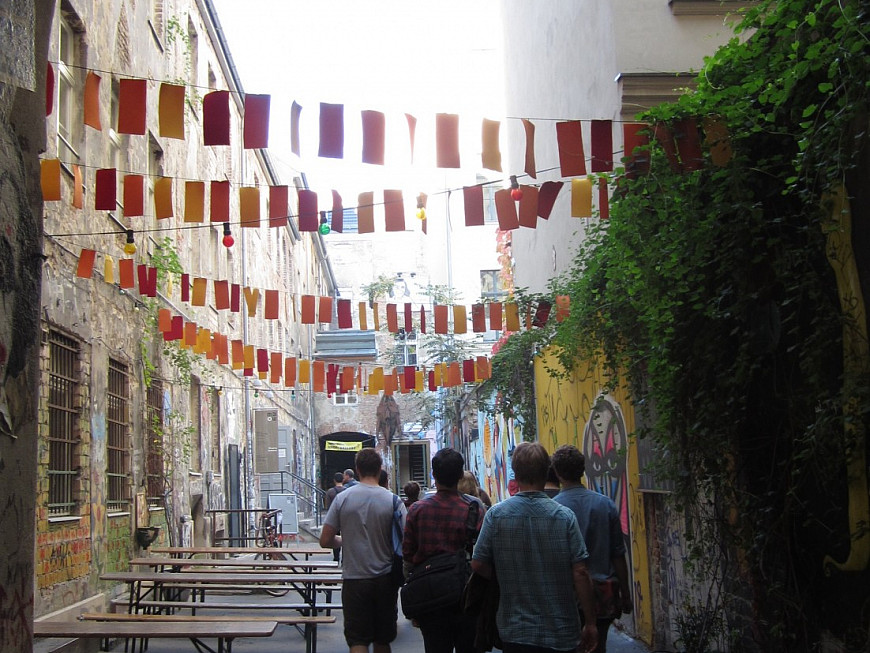
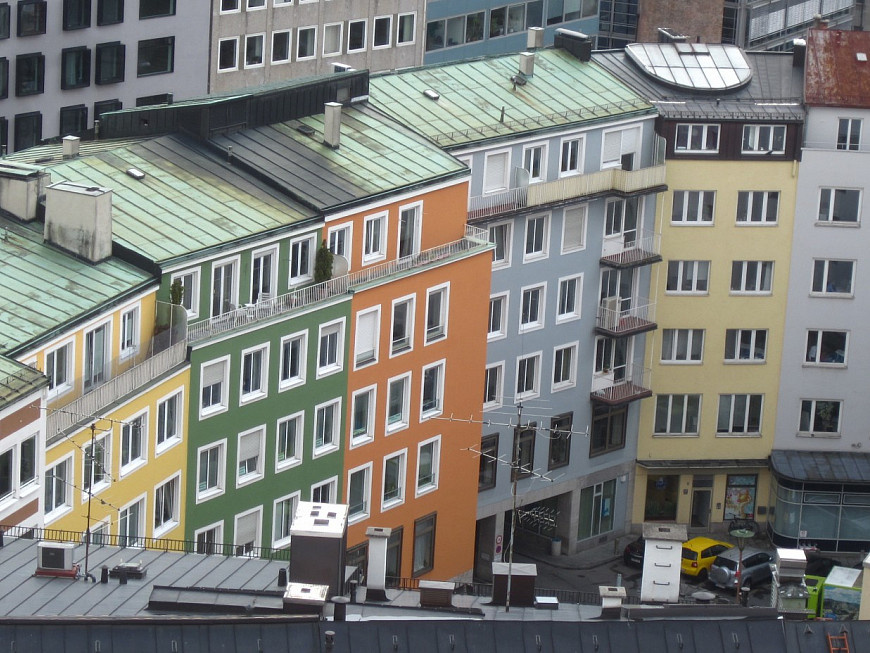
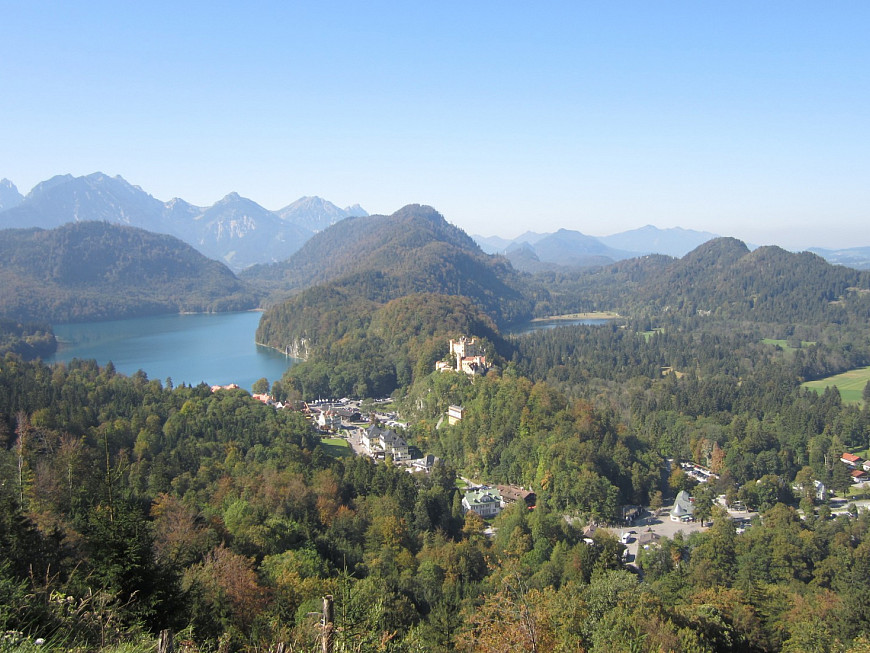
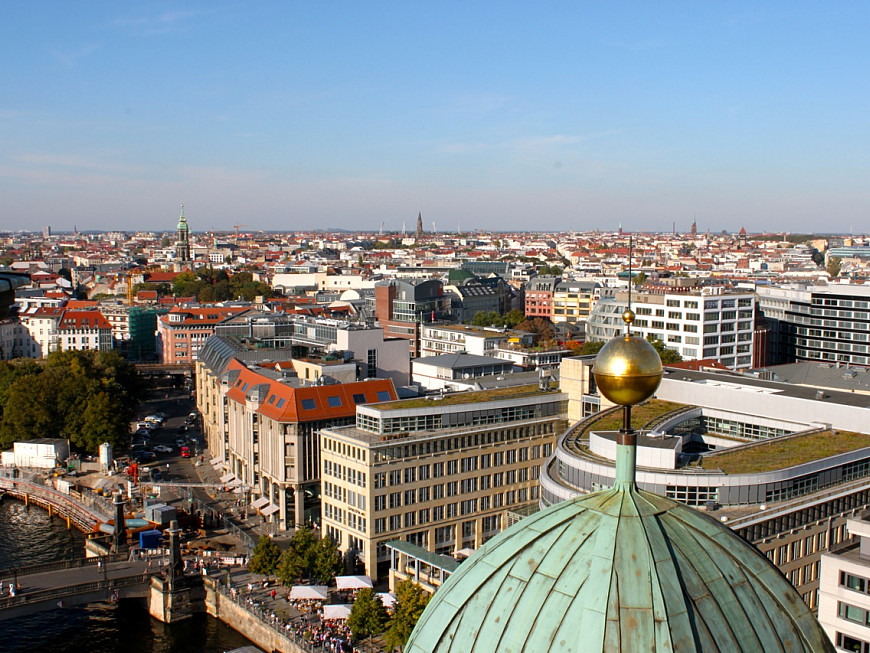
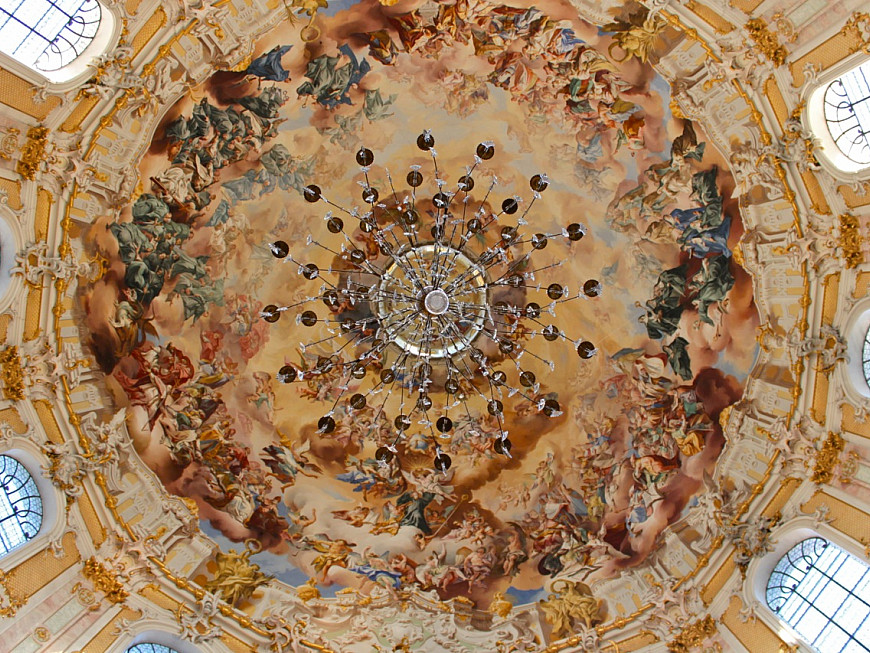
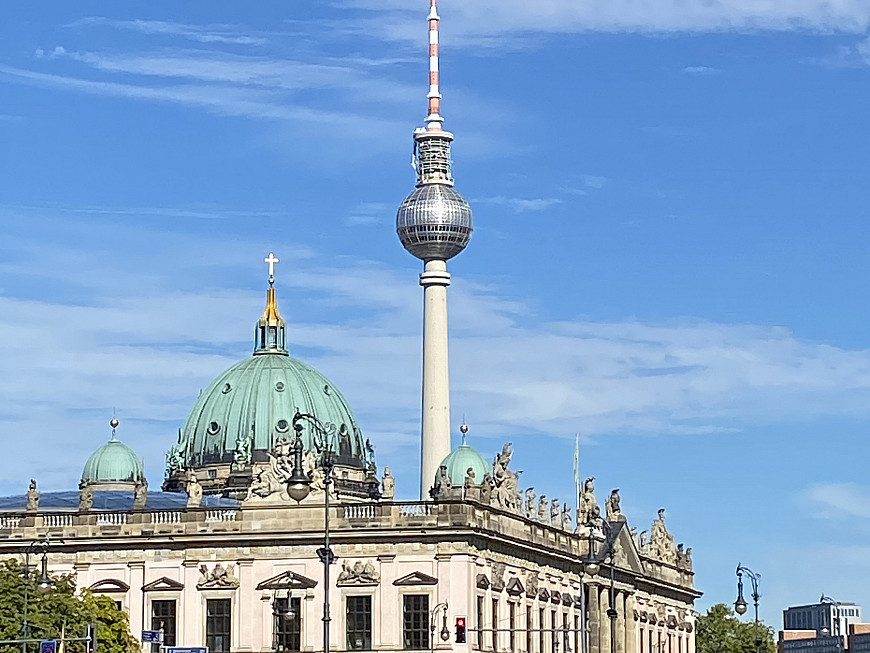
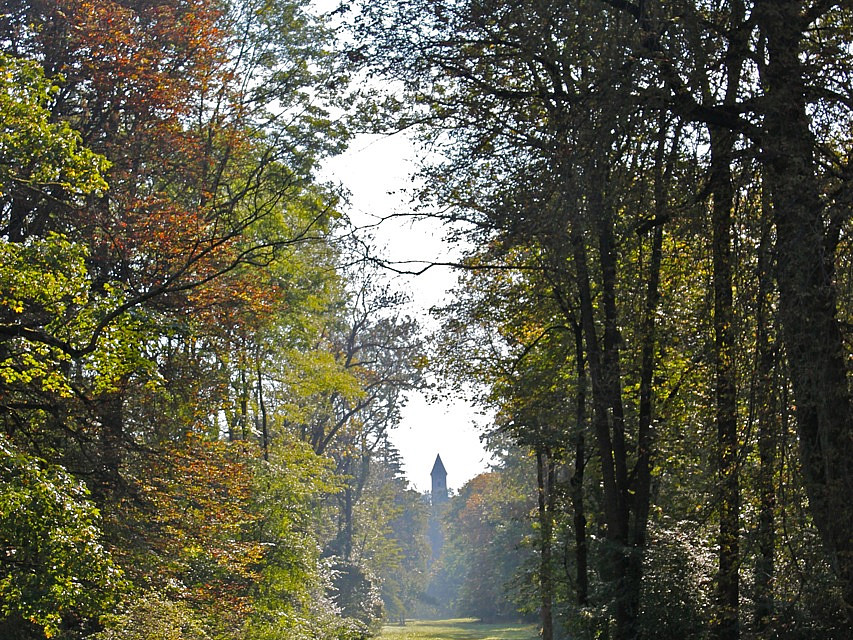
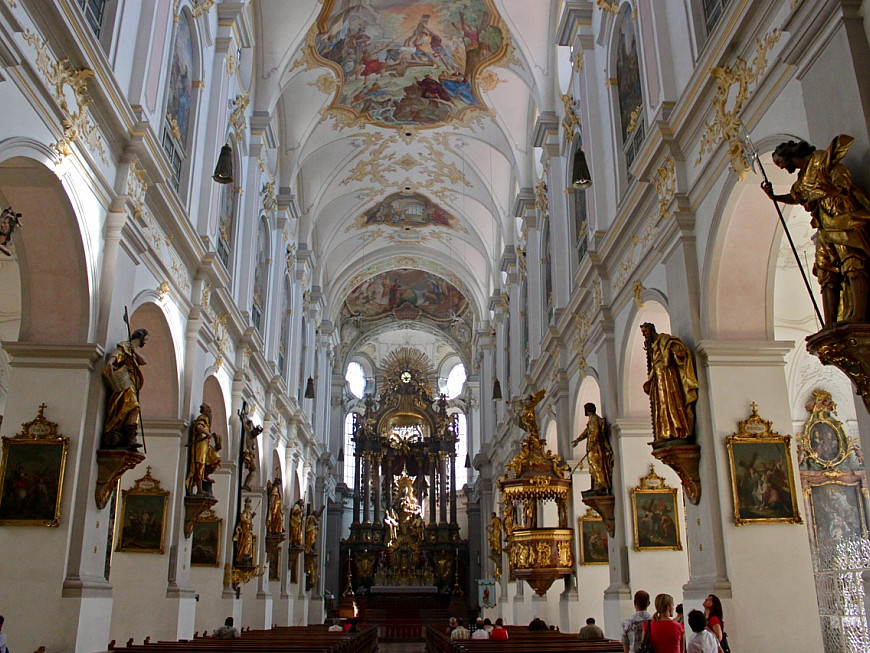
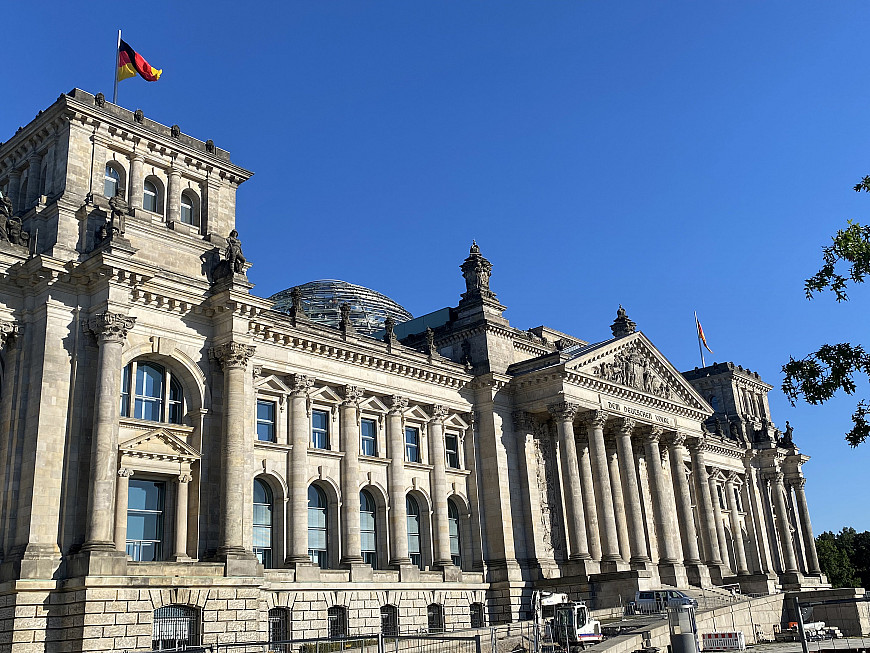

| Program Snapshot | |
| Semester: | Fall |
| Offered: | Fall 2025, Fall 2027 |
| Estimated Dates | Early September to mid December |
| Program Focus: | Regional Area Study with Optional Chemistry Emphasis |
| Prerequisites: |
For those students on the program wishing to take CHEM 330 instead of IS 263, there is a pre-req of CHEM 220. GPA of 2.75 or higher is expected. Students must satisfy the Words and Numbers CORE requirement before participating in an overseas program. |
| Housing: | Apartments |
| Fall 2025 Program Leader |
Julio de Paula |
Program Design
In cooperation with the Institute for the International Education of Students (IES), Lewis & Clark offers a program of study focusing on the culture, history, art, architecture, and politics of Berlin and Germany, as well as urban studies. Students (such as chemistry, biology, and biochemistry/molecular biology majors) may substitute CHEM 330: Structural Biochemistry for IS 263: Metropolitan Development.
Berlin was once called the heart of Europe, and it remains a significant center of European economic and cultural development. Situated between the East and West, Berlin is a mix of people from different cultures and social systems. People from all over the world have been calling Berlin home for many years. This unique mixture gives the city a kind of rough charm, which makes Berlin particularly inviting for students. Stroll through the streets of Berlin and around one corner you’ll see soaring modern buildings that incorporate cutting-edge sustainable technology. Around the next corner, you’ll see art galleries, cafés, and shops lining old cobblestone streets. As a city that has been built and rebuilt over the past century, Berlin remains a city of contrasts—and of innovation.
Onsite Staff: The center director of IES Abroad Berlin is Barbara Finke. Barbara holds an MA and a PhD degree in political science from the University of Mannheim in Germany. She also studied for a year at the Johns Hopkins University in Baltimore with a fellowship from the German Academic Exchange Service DAAD. Barbara conducted her PhD research on the legitimacy of non-governmental organizations in global governance with a case study on women’s NGOs in the United Nations system. She has taught and published on civil society in global and European politics and on international relations theory. From 2007 to 2017, Barbara was Program Head at the Hertie School of Governance in Berlin, a distinguished international graduate school that focuses on public policy and international affairs.
About the 2025 Program Leader, Julio de Paula: After 16 years at Haverford College, I moved to Lewis & Clark College in 2005. While on professional leave from 2010 to 2012, I was a Program Director in the Chemistry Division of the National Science Foundation. I have taught courses in general chemistry, physical chemistry, inorganic chemistry, instrumental analysis, biophysical chemistry, bioinorganic chemistry, environmental chemistry, nanoscience, and writing. To date I have mentored 52 undergraduate students in research supported by over $3 million in single-investigator and collaborative grants. I have received a Christian and Mary Lindback Award for Distinguished Teaching and a Henry Dreyfus Teacher-Scholar Award. In 2015 I was named a Cottrell Scholar by the Research Corporation for Science Advancement.
Academics
Requirements Fulfilled:
General Education - This program fulfills the Global Perspectives general education requirement for students who successfully complete 8 or more semester credits. IS 260 fulfills the Historical Perspectives general education requirement. IS 261 fulfills the Culture, Power and Identity general education requirement. IS 262 fulfills the Historical Perspectives or the Creative Arts general education requirement.
Major Requirements: CHEM 330 may be applied to the CHEM, BCMB, or BIO major.
Credits: 16 credits (4 courses)
Curriculum: The academic program takes place at the IES Berlin Study Center. All courses are taught in English.
IS 260: History of Modern Berlin (4 credits)
This course provides a history of Berlin from 1815 to the present, with a special emphasis on the periods of reunification and the postwar period. Students will examine changes in the economic structure, social development and technical history of Berlin. The course will focus on Berlin as a cultural center in literature, the fine arts, cabaret, and theater, as well as urban planning and the division and unification of a modern city.
IS 261: Contemporary Germany (4 credits)
This course introduces students to a wide variety of contemporary issues in Germany, including the political system, gender roles, regional differences, issues with labor migration and naturalization, and culture. As part of this course, students will learn from the unique characteristics present in the Berlin area, such as the German capital complex, the large Turkish immigrant community, the musical infrastructure (including three opera houses and two symphony orchestras), the arts (more museums than rainy days according to one advertising slogan), and the natural landscape beyond the city limits. The topics covered in this course will be supported by travel to the Baltic Sea Coast and Dresden. As part of the coursework, students will complete an independent study project on a topic of their choice, which they will work on for the duration of the program. Both written and oral presentations will be made during the final week of the program.
IS 262: 20th Century Art and Architecture (4 credits)
This course surveys German art and architecture from the rise of modernism circa 1900 through postmodernism and the present. The course aims to:
-
Study the individual works closely and interpret them critically by analyzing their formal structure, style, technique, iconography, etc.
-
Consider the concerns of the artists who created them
-
Place the works within their wider historical, political, economic, social, and cultural context as well as within the international development of the visual arts in Europe and—in the second half of the 20th century—the U.S.
Topics include Jugendstil (Art Nouveau), Expressionism, Dada, Surrealism, New Objectivity and Magic Realism, Bauhaus, art and architecture in Nazi Germany, art and architecture in the two German states—the GDR and FRG (1945-1989)—and the reflection of the German past, the reshaping of Berlin as the restored capital of Germany after 1989, and Pluralism in postmodern German art. An essential approach of the course is to work not only with slides and textual sources in class, but also with the original works during several field study visits to museums and walking tours to architectural sites. Students will experience firsthand the specific material qualities of the artworks discussed, and the urban context of the individual buildings.
IS 263: Metropolitan Development: Urban Studies in Comparative Perspective (4 credits)
This course examines Berlin’s complicated and often turbulent development. Students will explore the city’s urban landscape first hand and examine whether the forces that continue to forge Berlin’s identity are the same that have been at work in other European and American cities. Students in the course visit many of the city’s historic sites, and compare them to urban prototypes in Paris, Vienna, St. Petersburg, New York, Los Angeles, Lagos, and Dubai, among other cities. How have absolutist policies influenced the city? How have periods of powerful economic growth determined urban growth? How have the 20th century’s primary competing ideological systems altered the course of urban development in Europe? Berlin offers a unique opportunity to examine these questions in the one location where they have all played a vital role. The course devotes time to important urban issues, both historical and actual: the relationship of municipal and state government in city planning, the role of the automobile in the propagation of suburban sprawl, the impact of new technology on urban development, the city as an imperial or (post-)colonial power center, demographic challenges, the emergence of specific urban movements, contrasting patterns of racism, poverty, and immigration, security in an age of terrorism, and the impact of global warming.
NOTE: Students may substitute CHEM 330: Structural Biochemistry for IS 263: Metropolitan Development, provided that the prerequisite (CHEM 220) has been met.
CHEM 330: Structural Biochemistry (4 credits)
The structure-function relationship of biological molecules. Principles governing protein folding and methods used to assess protein structure; case studies illustrating how protein structure dictates function; DNA structure and the chemistry of protein-DNA interactions; membrane biochemistry and the dynamics of membrane organization; role of the membrane in facilitating transport, intracellular communication, and mediating the transmission of nerve signals
Excursions: The program includes trips to local and regional sites of interest to help students experience life and culture in Germany outside of Berlin. Students will visit Potsdam, the Baltic Sea, Leipzig/Dessau, and Dresden. On the Baltic Sea trip, there will be stops in Stralsund, Prora, and Peenemünd, as well as a boat trip to the chalk cliffs in Rügen. On the Dresden trip, stops will be made at Frauenkirche, Semper Opera, and the Elbe River banks. Students will also visit the Sachsenhausen concentration camp, the Sanssouci Neue Kammern in Potsdam, the many museums in Berlin, and other cultural sites in the area. Students will also participate in a four day excursion to Poland on this program.
Student Life
Housing: During their semester in Berlin, students will be in apartments. Each student will have their own room, furnished with a bed, desk or table, storage space, bed linens and towels. Students will share the bathroom, kitchen, and other common living spaces with other students. Students are responsible for purchasing and preparing their own meals, but the Overseas Office will give them a stipend to cover the cost of their food. Students have the option to prepare their own meals at home or eat at one of Berlin’s many inexpensive restaurants, and on weekdays, they can purchase an inexpensive lunch at one of the university cafeterias.
Extracurricular Activities: Students can find many opportunities to participate in extracurricular activities through Humboldt University. Joining a club, finding a Sprachpartner, taking a sport or dance class, attending the HUB “Orbis” program for international students, and volunteering are all excellent ways for students to fill their time outside of their classes and to meet local students.
Cost
2024-2025 Fee Breakdown*
Total Fee (includes Tuition, Program Fee, and Health & Wellness Fee): $40,962
Tuition: $32,197
Program Fee: $8,728
Health & Wellness Fee: $37**
Included in the program fee are room/housing, board/meals, and administrative fees. Not included are airfare, passport and visa expenses, primary insurance coverage, photographs, books, immunizations, and incidentals.
*Fees are updated every February for the following academic year.
**The Health & Wellness Fee supports the operations of Wellness Services staff in delivering pre-program orientation services, as well as in providing health-related consultation regarding participant health needs. All students in the College of Arts and Sciences pay a mandatory fee of $37 per semester.
Stipend: Students will receive a stipend to cover the cost of meals and transportation costs not covered by the program fee.
Estimated Airfare (Round Trip PDX to BER): $800 - $1,500
Estimated Travel Document Fees: $65 - $100
Estimated Health Insurance Fee: $1,906
All students participating in overseas programs are automatically enrolled in iNext, a supplemental travel insurance program. The fee for iNext is covered in the program cost. However, students are also required to have comprehensive health insurance during their time abroad. All students participating in overseas programs, both abroad and domestic, are automatically enrolled in the College’s student health insurance program. Similar to a regular semester on-campus, students participating in overseas programs may waive enrollment in the student health insurance program if they have other comprehensive health insurance (e.g., through a parent, guardian or employer) that 1) provides coverage for them in the geographic region in which they will be studying and 2) includes mental health benefits. Click here for more information regarding health insurance & overseas programs.
Program Preparation
Application Process: This program has a dual application process. Student must first submit a Lewis & Clark Application one year before the start of the program. Once admitted by Lewis & Clark, the students will receive instructions for submitting their secondary application to IES and will receive a separate notification letter of admission. Please keep a digital copy of your essays and other application materials as you will need to submit these similar materials to IES. Please note that this secondary application process can be as late as the semester preceding your scheduled participation.
The semester before the program, students who have been accepted will meet regularly for orientation. This orientation is meant to prepare the students for life in Berlin by exploring literature and culture, and provides an opportunity for students to learn more about the logistical details of the program.
For more information about the application process, click here.
Travel: Students usually fly into the Berlin Brandenburg Airport (BER), where they will take a pre-arranged bus to the IES Berlin Study Center.
Visa: Students will be required to apply for a visa in order to participate in this program. More information will be provided upon admission to the program.
Country-Specific Health Information: Click here to view specific health information for people traveling to Germany.
State Department Country Information: Click here to visit the State Department’s Germany page.
Germany, Berlin
Overseas and Off-Campus Programs is located in room 206 of Albany Quadrangle on the Undergraduate Campus.
MSC: 11
email overseas@lclark.edu
voice 503-768-7295
fax 503-768-7300
Director Blythe Knott
Overseas and Off-Campus Programs
Lewis & Clark
615 S. Palatine Hill Road
Portland OR 97219